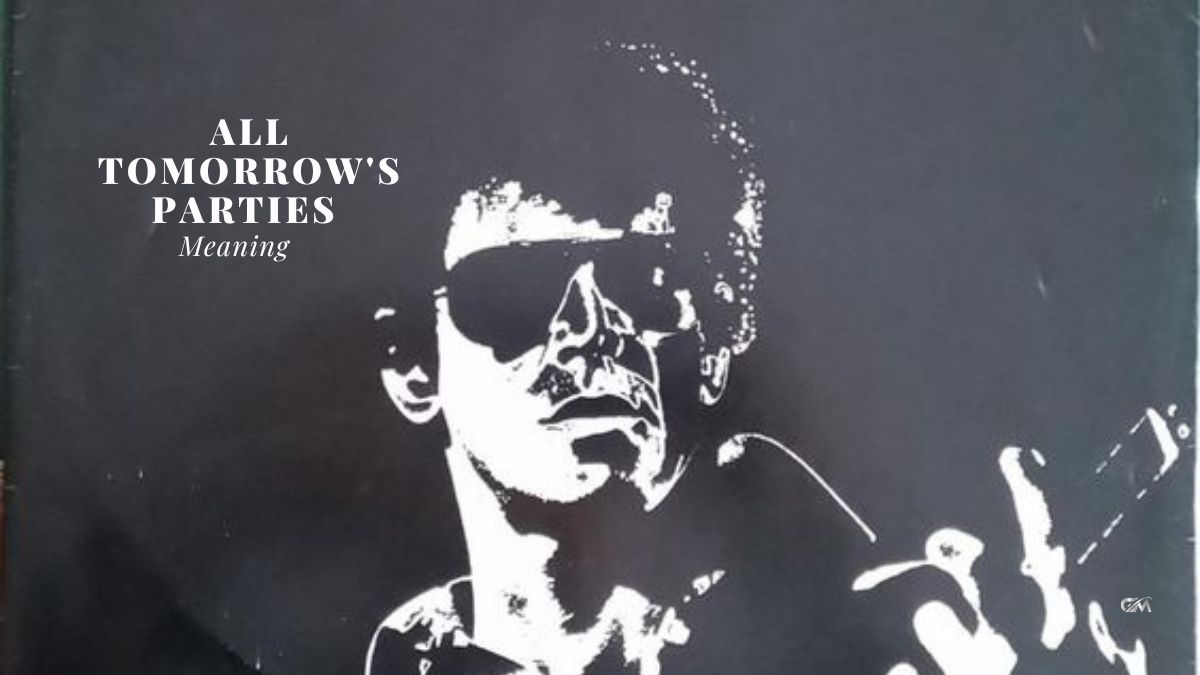Ever wondered why All Tomorrow’s Parties resonates so deeply with music enthusiasts and cultural historians alike? This song, by The Velvet Underground, isn’t just a classic; it’s a phenomenon that encapsulates an era. Understanding All Tomorrow’s Parties Meaning is like peeling back the layers of a vibrant, multifaceted onion – each layer revealing more about the 1960s counterculture, artistic expressions, and personal identities. Let’s dive into the rich tapestry that makes this song a timeless masterpiece.
The Origin of “All Tomorrow’s Parties”
All Tomorrows Parties Meaning was penned by the iconic Lou Reed and performed by The Velvet Underground. Released in 1967, it was part of their debut album, “The Velvet Underground & Nico”. The band, often hailed as the pioneers of alternative rock, crafted a unique sound that blended art rock, proto-punk, and avant-garde music. This song stands out as one of their most emblematic works, capturing the essence of an era brimming with change and experimentation.
Context of the 1960s
The 1960s were a time of profound cultural transformation. The decade was marked by social upheaval, artistic innovation, and a spirit of rebellion. Music and art were at the forefront of this change, serving as both a reflection and a catalyst of the evolving societal norms. “All Tomorrow’s Parties” is a product of this vibrant period, encapsulating the mood and ethos of its time.
The Velvet Underground: A Brief History
The Velvet Underground was formed in New York City in 1964. The original lineup included Lou Reed, John Cale, Sterling Morrison, and Maureen Tucker. Under the mentorship of the avant-garde artist Andy Warhol, who also produced their debut album, the band developed a distinctive sound that set them apart from their contemporaries. Despite not achieving commercial success during their active years, their influence on future generations of musicians is immeasurable.
Lou Reed: The Creative Force
Lou Reed, the primary songwriter and frontman of The Velvet Underground, was a creative genius whose work continues to inspire. Born in Brooklyn, New York, Reed’s early life and experiences shaped his artistic vision. His songwriting is characterized by its raw honesty, poetic flair, and exploration of themes like identity, addiction, and urban life. Reed’s contributions to the band were instrumental in defining their sound and lyrical depth.
The Song’s Lyrics: An Analysis
All Tomorrow’s Parties Meaning paints a vivid picture of a melancholic future through its evocative lyrics. The song tells the story of a woman who wears different “costumes” to various parties, symbolizing the ephemeral nature of identity and the search for meaning. Lines like “And what costume shall the poor girl wear / To all tomorrow’s parties” capture the poignant uncertainty and longing that pervade the song.
Musical Composition
The song’s musical composition is as intriguing as its lyrics. It features a haunting piano riff played by John Cale, complemented by Nico’s distinctive vocal delivery. The minimalistic yet powerful instrumentation creates a mesmerizing soundscape that draws listeners in. The influence of producer Andy Warhol is evident in the song’s avant-garde elements, adding to its unique charm.
Cultural Significance
“All Tomorrow’s Parties” resonates deeply with audiences because it encapsulates the spirit of the 1960s counterculture. Its themes of identity, transience, and existential questioning struck a chord with listeners who were navigating a rapidly changing world. The song’s enduring appeal lies in its ability to evoke a sense of time and place while remaining relevant to contemporary audiences.
Artistic Expressions
The influence of “All Tomorrow’s Parties” extends beyond music into the realm of visual art. Andy Warhol’s connection with The Velvet Underground brought a synergy between music and art, leading to innovative expressions that transcended traditional boundaries. The song’s aesthetic and thematic elements have inspired numerous artists, reinforcing its status as a cultural touchstone.
Personal Identities
“All Tomorrow’s Parties” delves into the complexities of personal and social identities. The narrative of the woman in the song reflects Lou Reed’s introspection and his exploration of societal roles and expectations. The lyrics resonate with anyone who has grappled with the fluidity of identity and the desire for self-discovery.
The Song in Popular Culture
Over the years, “All Tomorrow’s Parties” has made its mark in popular culture. It has been featured in films, television shows, and commercials, each time introducing the song to new audiences. Numerous artists have covered and reinterpreted the song, showcasing its versatility and timeless appeal. References to the song in literature and media further attest to its widespread influence.
Reception and Criticism
Initially, “All Tomorrow’s Parties” received mixed reviews. However, as time passed, it gained critical acclaim for its innovative approach and profound lyrics. Today, it is regarded as a seminal work that has left an indelible mark on the music landscape. Modern-day critics and fans alike continue to praise the song for its artistic brilliance and emotional depth.
Legacy of “All Tomorrow’s Parties”
The legacy of All Tomorrow’s Parties Meaning is evident in its lasting impact on music and culture. The song has influenced countless musicians, from punk rockers to indie artists, who draw inspiration from its bold experimentation and introspective lyrics. Its continued relevance is a testament to the timeless nature of great art.
Conclusion
All Tomorrow’s Parties Meaning is more than just a song; it’s a window into a pivotal moment in cultural history. Through its haunting lyrics, innovative composition, and deep emotional resonance, it captures the essence of the 1960s and continues to inspire new generations. Whether you’re a longtime fan or a newcomer, the song offers a rich, multifaceted experience that’s worth exploring.







